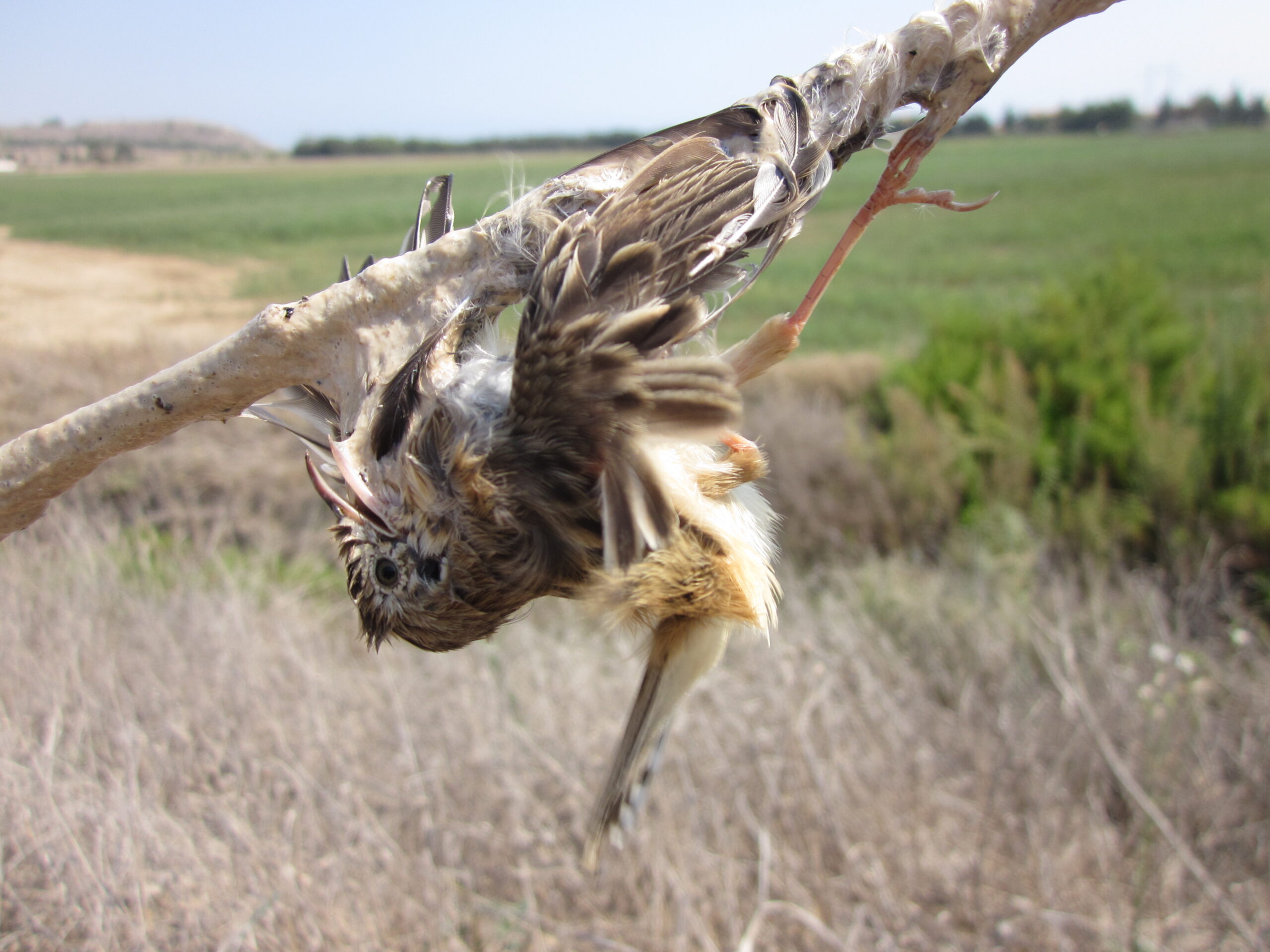Conservation group BirdLife Cyprus reported a “worrying increase” in illegal bird trappings last year, blaming reduced fines for killing protected species.
“This sadly comes as no surprise, following a shameful relaxation of the Cyprus bird-protection law in December 2020,” said BirdLife Cyprus.
It has systematically monitored bird trapping levels for the last 20 years in areas located in the Republic and Dhekelia British Base area.
Fieldwork analysis for autumn 2021 showed a big increase in trapping levels with mist nets within the survey areas compared to 2020.
Autumn is when trappers target migratory birds, especially Blackcaps and other migrant songbirds.
For the Republic, autumn 2021 mist netting activity was 132% higher than autumn 2020.
Compared to 2002, last year’s levels were 42% lower.
For the British Bases, autumn 2021 mist netting activity showed an increase of 46% compared to 2020.
Compared to 2002, the autumn 2021 levels were 84% lower.
Last year’s increase is similar to the last four years but significantly lower than the peak 2016 trapping season when 2.3 million songbirds were killed.
“These recorded trapping levels amount to just over 600,000 birds that might have been illegally trapped and killed in the autumn of 2021 within the survey areas.
“This troubling increasing trend in trapping activity comes after a series of retrograde steps on a policy level that sent a general message of decriminalising bird trapping.
“The most recent one being a damaging law amendment, which resulted in severely decreased fines for trapping with limesticks or shooting up to 50 birds from a list of 14 different species under the ‘ambelopoulia’ category,” said BirdLife Cyprus in a statement Wednesday.
Fines reduced from €2000 to €200 “are non-deterrent and non-punitive, and clearly not proportionate to the profit one would make by illegally selling these birds”.
BirdLife Cyprus said with many songbird species looking alike, implementation and enforcement in the field has become “more challenging and practically unfeasible”, with many species being ‘lumped’ under the €200 category.
It said there should be no difference in fines based on the killing method or on how “valued” some birds are by poachers and trappers.
In a letter to the Cyprus government last October, the European Commission expressed concern and urged Nicosia to annul the law amendment and restore the fines starting at €2000.
A BirdLife Cyprus petition calling to scrap the amendment was signed by almost 14,000 people and handed to House Speaker Annita Demetriou.
“The state’s objective should be the protection and conservation of our natural heritage, starting from re-instating a strict and deterrent law.
BirdLife Cyprus wants fines increased to €2000 for all birds, regardless of the killing method or bird species.
“Cyprus is very likely to be taken to the EU Court of Justice for the insufficient protection of migratory birds, as highlighted in the Commission’s letter last October.
“Re-instate the Cyprus Police Anti-Poaching unit to more effectively deal with large-scale organised trappers and violence/threats from trappers.”
The illicit trade in consuming migratory birds is estimated at €15 mln per year, although illegal for decades; critics blame lax enforcement.










